“With immunotherapy, you don’t treat the cancer directly; you treat the immune system, which in turn will kill the cancer.”

Cancer Vaccines’ Promise
Features
The quest for cancer vaccines is finally turning a corner, accelerated by strides in cancer immunotherapy and COVID-19 vaccine technology. Patients are closer than ever to benefiting from a new treatment approach pursued by Sandra and Edward Meyer Cancer Center researchers.
In her journey against colon cancer, Stacey Haglund has faced ever-lengthening odds.
Haglund, 49, underwent her first-ever colonoscopy in October 2022, after noticing blood in her stool. “My primary care doctor was sure it was nothing to worry about,” says Haglund, a high school biology teacher in Charlotte, North Carolina. “But sure enough, I had a tumor in my lower colon.”
Oncologists initially told Haglund that the malignant growth looked readily treatable with surgery. Subsequent imaging, however, showed the tumor had broken through her intestinal wall, prompting chemotherapy and radiation.
An operation to remove around nine inches of colon in March 2023 found that the cancer had spread to Haglund’s lymph nodes.
Then, new imaging revealed lesions on her liver — telltale signs of distant metastasis, giving Haglund little more than a 10% chance of surviving beyond five years.
Devastated but undaunted, Haglund pursued multiple consultations before being referred to Dr. Pashtoon Kasi, head of Weill Cornell Medicine’s colorectal cancer research program and director of liquid biopsy research at the institution’s Englander Institute for Precision Medicine.
When Haglund and her husband met with Dr. Kasi in New York, “We immediately felt connected,” she says. “I knew Dr. Kasi was who I needed to go to. He came up with a great treatment plan and he told me, ‘We can get you through this.’”
As part of her therapy, Haglund is one of only several dozen patients worldwide who has received an experimental cancer vaccine through the KISIMA-01 clinical trial, for which Dr. Kasi is a co-investigator and Dr. Manish Shah, a professor of medicine and the Bartlett Family Professor in Gastrointestinal Oncology, is the principal investigator.
Many more patients like Haglund stand to benefit from cancer vaccines, which are now emerging as a promising new strategy to accelerate progress against cancer. At Weill Cornell Medicine, researchers are in the vanguard, both in deploying these cutting-edge cancer vaccines and developing novel vaccine strategies. The encouraging early findings and rapidly expanding pipeline have given patients like Haglund new hope.

‘Exciting Time’
According to the World Health Organization, cancer ranks among the leading causes of mortality worldwide, responsible for nearly one in six deaths. Alarmingly, cancer incidence is expected to increase in coming decades. In the United States alone, the Centers for Disease Control and Prevention anticipates annual cases to jump about 40% over 2020 levels by 2050, especially in people under the age of 50.
While surgery, chemotherapy and radiation — the most common forms of cancer treatment — continue to save or prolong millions of lives a year, new methods of treating cancer are clearly needed. Many researchers believe that vaccines will prove a potent addition to the oncologist’s toolbox.
“It is a particularly exciting time,” says Dr. Jedd Wolchok, Meyer Director of the Sandra and Edward Meyer Cancer Center and a professor of medicine. “There are no definitive answers yet, but the science has been moving along very nicely.”
Vaccines work by priming the immune system to respond in force against a foreign agent — customarily a bacterium or virus — to offer protection against serious infection. Since the first vaccine (for smallpox) was invented by English physician Edward Jenner in 1796, vaccines have saved more lives than any other medical invention in history.
Vaccinologists are now hoping to translate some of this overwhelming success against infectious disease to noninfectious disease, chiefly cancer. The overall strategy remains the same: to teach the immune system to recognize cancer cells as invaders. That, however, is no small feat, since one of cancer’s hallmarks is tricking our bodies into accepting malignant cells as our own and not as rogue cells that must be destroyed.
Cancer vaccines are accordingly a form of immunotherapy, which seeks to amplify the immune system to root out disease. “With immunotherapy, you don’t treat the cancer directly; you treat the immune system, which in turn will kill the cancer,” says Dr. Taha Merghoub, deputy director of the Meyer Cancer Center, a professor of research in pharmacology, professor of immunology research in medicine and the Margaret and Herman Sokol Professor in Oncology Research.
Broadly, cancer vaccines can be used either to treat cancer by thwarting significant, ongoing disease, or to prevent cancer recurrence by removing malignant cells very early, before they can become dangerous. For both strategies, as well as an innovative vaccine-like approach with radiation therapy [see sidebar], Weill Cornell Medicine researchers are testing strategies to move the field forward and improve patient outcomes.

“We can produce a vaccine in short order that is highly targeted to an individual person’s tumor mutation landscape.”
Immune System, Mount Up
Much of the excitement around cancer vaccines stems from recent advances in vaccine technology, specifically the mRNA platform.
The advances were hard-earned, spurred on by the spectacular success of the COVID-19 vaccines. By leveraging research and development into mRNA vaccines originally geared toward cancer, companies managed to produce highly effective immunizations against COVID-19 in less than a year — an unprecedentedly short turnaround time for a brand new vaccine.
“The COVID experience has given cancer vaccine researchers a lot of reason for enthusiasm,” says Dr. Wolchok.
Short for “messenger RNA,” mRNA is a foundational molecule found in all cells. mRNA conveys instructions from genetic material to ultimately make proteins, the workhorses of biology. Proteins and other substances that elicit an immune response are known as antigens, and certain antigens occurring on the surfaces of pathogens — and critically on cancer cells, as well — are distinct from those displayed by noncancerous cells. Some cancer vaccines are accordingly being designed to put the immune system on high alert for uniquely cancer-connected antigens.
Toward this end, Dr. Wolchok and other Weill Cornell Medicine researchers are working in the area of personalized cancer vaccines — so named because they are custom-tailored to target the specific “neoantigens” that occur only on individual patient’s cancerous cells.
To identify neoantigens, researchers first obtain samples of a patient’s tumor, usually through surgery, and then genetically sequence the malignant cells. Just 10 years ago, the time and cost required to sequence tumor cells was prohibitive. But today the task can be completed in weeks for a few thousand dollars.
“With neoantigen information that we can now pretty quickly and inexpensively obtain, a vaccine can be manufactured in short order that is highly targeted to an individual person’s tumor mutation landscape,” says Dr. Wolchok.
A recent study, led by researchers at Memorial Sloan Kettering Cancer Center, speaks to the promise of this approach. The study centered on pancreatic ductal adenocarcinoma (PDAC), one of the deadliest cancers that kills nearly 90% of patients within five years of diagnosis. Sixteen PDAC patients received personalized mRNA vaccines, which included up to 20 neoantigens isolated on surgically removed pancreatic cancer tumors.
Half of the vaccinated patients exhibited strong neoantigen-targeting T cell generation, as intended. T cells are critical players in immune response, both as “helper” CD4 T cells that stimulate production of antigen-targeting antibodies to neutralize cancer cells, and as “killer” CD8 T cells that — as their name suggests — directly do the deed themselves.
Remarkably, 18 months later, the eight therapy-responsive patients showed no recurrence of their pancreatic cancer. Also remarkably, the time between surgery to first vaccine dose averaged only nine weeks.
“The rapid production aspects of mRNA vaccines, as well as formulations that make them so immunogenic, are quite attractive,” says Dr. Wolchok, who with Dr. Merghoub was an author on the study.
Similarly promising early results with mRNA vaccines have also been reported in patients with high risk of recurrent melanoma, the deadliest form of skin cancer, and for which Dr. Wolchok has been instrumental in establishing immunotherapy as a novel form of treatment.
One major challenge researchers face is identifying the best neoantigens for intensive vaccine development. The process is made difficult by cancerous cells often harboring dozens, if not hundreds, of neoantigen-sprouting mutations.
“Once we’ve sequenced someone’s tumor DNA, we still need to know which of the hundreds of mutations gives rise to a target,” says Dr. Wolchok. “In that area, we are still finding our way.”
Common Targets
To help accelerate neoantigen quality assessment, scientists — including those at Weill Cornell Medicine’s Department of Pathology & Laboratory Medicine and the Englander Institute for Precision Medicine — are turning to computational biology, which brings together Big Data and ultrafast sequencing with tools such as artificial intelligence and machine learning.
The hope is that not only will clear neoantigen immune system objectives regularly come to the fore, but also deeper characterization of “shared antigens” that present across many patients’ tumors.
Researchers have already made significant headway in identifying and increasingly targeting these common cancer antigens. Unlike with neoantigens, which require bespoke vaccines after biopsy or surgery, shared antigen vaccines can be “off the shelf,” meaning generically formulated for prevailing immunogenic tumor features, less expensive to produce, and immediately available.
“An off-the-shelf cancer vaccine is ideal because you could have the right vaccine at the right time and that applies to everyone,” says Dr. Merghoub, who with Dr. Wolchok published a study last year about a potential shared antigen for a class of blood cancers called myeloproliferative disorders that is an attractive vaccine candidate.
Another example of an off-the-shelf, shared antigen vaccine is the novel drug that Stacey Haglund is receiving through the KISIMA-01 trial. Called ATP128, the vaccine primes the immune system against three antigens commonly expressed by colorectal cancers. To reduce the ability of cancer cells bearing these antigens to “hide” from the immune system, Haglund and other patients also receive an immune checkpoint inhibitor drug. Because cancer cells display the same immunological “off” switches as normal cells, immune checkpoint inhibitor drugs prevent T cells from receiving this “off” signal, thus equipping them to attack malignant cells (though at the risk of collaterally damaging healthy tissues).
Approved for use in humans for over a decade now, immune checkpoint inhibitors will play a critical role in realizing the full potential of cancer vaccines, says Dr. Merghoub, whose research includes finding ways to enhance inhibitor efficacy.
As a further case in point, vaccines and immune checkpoint inhibitors working together are being explored in an ongoing clinical trial for which Dr. Shah also serves as principal investigator. The trial centers on patients with inoperable or metastatic colorectal cancers whose malignant disease is driven by mutations in their DNA mismatch repair system’s genes, which fix naturally occurring, random DNA damage. Researchers liken the condition to having a broken “autocorrect” for one’s own DNA. “Because of defects in DNA repair, these tumors end up having a lot of mutations,” Dr. Shah explains. “Those mutations create neoantigens — new proteins that the immune system can recognize.”
In the subset of colorectal cancer patients affected by this phenomenon, their neoantigens display defined patterns, meaning that ultimately an off-the-shelf, shared antigen approach could be effective. The novel polyvalent vaccine at the heart of the trial targets the 50 most common mutated neoantigens, covering about 95% of these patients.
The hope is that the vaccine will augment the immune checkpoint inhibitor therapy, which on its own extends the lives of only about half of patients in this cohort who receive it.
“Through this clinical trial and others, we feel fortunate to be able to offer therapies to patients that are novel and cutting-edge,” says Dr. Shah.

“We feel fortunate to be able to offer therapies to patients that are novel and cutting-edge.”
Nipping Cancers in the Bud
Arguably even better than vaccines to treat active cancer would be vaccines that squash malignancies from the get-go, when only a handful of cells — or even a single cell — have gone haywire.
“Cancers are at their most vulnerable when they’re only a few cells and have not established a tumor environment that feeds the cancer and suppresses the immune system,” says Dr. Steven Lipkin, a professor of medicine, genetic medicine and the Gladys and Roland Harriman Professor of Medicine, who works on cancer vaccine development for patients with DNA mismatch repair mutations and helped design the colorectal cancer study Dr. Shah is leading.
Two vaccines that effectively prevent cancer caused by viruses — the hepatitis B virus (HBV) and human papilloma virus (HPV) — have been widely used for many years. Unlike the new immunotherapeutic generation of cancer vaccines, these vaccines empower the immune system against infectious entities known to trigger mutations in cells that vastly increase cancer risk.
According to the CDC, chronic HBV infections are linked to over half of all liver cancer diagnoses worldwide, while HPV causes more than 90% of anal and cervical cancers, around 70% of vaginal and vulvar cancers, and greater than 60% of penile cancers. Since vaccine rollouts, incidence of cancers related to these infections has dropped dramatically.
Researchers aim to build on this progress by cultivating the immune system to weed out cells showing early signs of malignancy well before they mutate enough to start evading immune surveillance.
To this end, Dr. Lipkin and Dr. Nasser Altorki recently received a $5.7 million grant from the National Cancer Institute to develop new cancer mRNA vaccine models, with the goal of entering clinical trials in five years.
Dr. Lipkin’s research focuses on Lynch syndrome, an inherited DNA mismatch repair deficiency condition. Afflicting about 1 in 280 Americans, Lynch syndrome is the most common genetic predisposition for gastrointestinal cancers, especially colorectal cancer.
Dr. Lipkin and colleagues are working on identifying the most prominent shared antigens displayed by Lynch syndrome-driven cancers and honing an mRNA vaccine platform to galvanize immune system cells accordingly.
Dr. Altorki’s vaccine research focuses on stopping precancerous lung lesions — known as lung non-solid nodule (NSN) premalignant neoplasms — before they progress to full-blown lung cancer. At present, the only treatment for these lesions is to surgically remove them. Yet this procedure can only be done when the lesions appear at lung edges, which often is not the case.
“Many people have multiple lesions, so that’s why you want to find a nonsurgical treatment,” says Dr. Altorki, professor of cardiothoracic surgery and the David B. Skinner, M.D. Professor of Thoracic Surgery at Weill Cornell Medicine, and director of the Division of Thoracic Surgery at NewYork-Presbyterian/Weill Cornell Medical Center.
In ongoing preclinical characterization and development, Dr. Altorki is working alongside Dr. Timothy McGraw, professor of biochemistry and of biochemistry in cardiothoracic surgery, and Dr. Vivek Mittal, professor of cell and developmental biology in cardiothoracic surgery, professor of cell and developmental biology and the Ford–Isom Research Professor of Cardiothoracic Surgery. Dr. McGraw is gauging how certain lung cells help regulate local immune response in the context of cancer, while Dr. Mittal’s lab has created a preclinical model of premalignant lung cancer that will be essential for the early testing of vaccines against certain neo- and shared antigens.
“We have all the building blocks in place and are ready to move forward,” says Dr. Altorki.
‘Seeing’ Cancer as ‘Evil’
Fundamental science that could likewise pave the way for new cancer vaccines involves the skin. New treatments for skin cancer are needed, given that more people develop this disease than all other cancers combined, including one in five Americans by the age of 70, and with the deadliest form, melanoma, spiking in incidence.
But our skin has deeper importance as an immunologically unique and complex area, says Dr. Niroshana Anandasabapathy, an associate professor of dermatology and of dermatology in microbiology and immunology. The largest organ of the body, skin serves as the main barrier between our internal environment and the external world. Standing guard, our skin hosts twice as many immune cells as our blood.
Because of the rich immune responses that skin can generate, the tissue layer looks highly promising for formulating both therapeutic and preventative cancer vaccines, regardless of the tissue type in which the cancer happens to originate. One key cell Dr. Anandasabapathy and colleagues are investigating is the dendritic cell type. Besides the skin, these cells occur in the “spaces” where the external environment interfaces with our body, including the lungs and gastrointestinal tract — the deadliest tissue sites of origin for cancer. By acting as special antigen-presenting cells for training T cells to deal with foreign entities, dendritic cells have a frontline role in immune surveillance and anti-tumor activity throughout the body.
“You can think of dendritic cells as generals in the immune army; they tell immune cells to stay tolerant to self or to go kill,” says Dr. Anandasabapathy. “Our hope is to better understand this population of dendritic cells, how they ‘see’ cancers, and to develop a vaccine that enhances their discernment of ‘good’ versus ‘evil.’”
Clinic-Bound, in Time
Although it is heady days for cancer vaccines, it is also early, researchers emphasize. Extremely few cancer patients have received cancer vaccines, and even fewer have seen significant, enduring improvement or remission of their disease.
The accelerating pace of preclinical research and surge in clinical trials, though, reflect investigators’ hope that vaccines for cancer could become as familiar, commonplace, and eventually even as effective as childhood and adult vaccines for infectious disease.
For Haglund and others living with aggressive and advanced cancers, the road ahead is uncertain. But compared to even just a decade ago, the outlook is far brighter.
“I just want to give back,” says Haglund. “I’m happy to be a part of research that will help someone else walk this path behind me.”
Many Weill Cornell Medicine physicians and scientists maintain relationships and collaborate with external organizations to foster scientific innovation and provide expert guidance. The institution makes these disclosures public to ensure transparency. For this information, see the research profiles on vivo.weill.cornell.edu for Dr. Nasser Altorki, Dr. Niroshana Anandasabapathy, Dr. Silvia Formenti, Dr. Pashtoon Kasi, Dr. Steven Lipkin and Dr. Jedd Wolchok.
Fall 2023 Front to Back
-
From the Dean

Message from the Dean
New Dean Robert A. Harrington, M.D. reflects on Weill Cornell Medicine’s tripartite mission — to care, to discover and teach — and ways to deepen and advance these goals. -
Features

Cancer Vaccines’ Promise
Patients are closer than ever to benefiting from a new treatment approach, thanks to strides in immunotherapy and COVID-19 vaccine technology.
-
Features

Silent Partners
How the brain’s less celebrated cells may drive Alzheimer’s disease and other dementias. -
Features
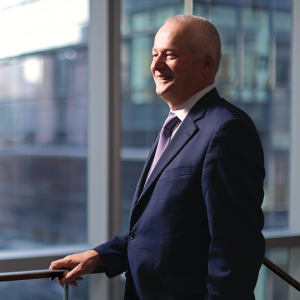
Future Forward
Dean Robert A. Harrington, M.D., shares his vision for Weill Cornell Medicine in a wide-ranging Q&A.
-
Notable

A New Residence for Graduate and Medical Students
A modern new residence on the Upper East Side campus will enhance the student experience. -
Notable

Dateline
Dr. Jyoti Mathad’s research could transform maternal health in under-resourced countries. -
Notable

Overheard
Weill Cornell Medicine faculty members are leading the conversation about important health issues across the country and around the world. -
Notable

News Briefs
Notable faculty appointments, honors, awards and more — from around campus and beyond. -
Grand Rounds

Playing With Heart
A transplant serves up a new beginning. -
Grand Rounds
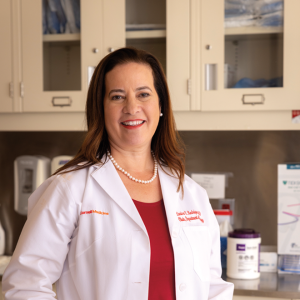
An End to Suffering in Silence
Weill Cornell Medicine’s Center for Female Pelvic Health is committed to treating women with dignity. -
Grand Rounds

News Briefs
The latest on teaching, learning and patient-centered care. -
Grand Rounds

3 Questions
During the COVID-19 pandemic, Weill Cornell Medicine adapted medical education. It wasn’t the first time the institution responded to historic public health events. -
Discovery
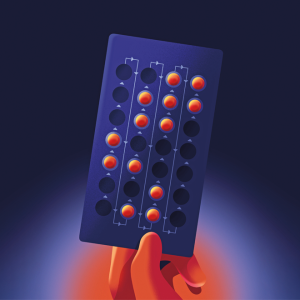
Making a Male “Pill”
A new “on-demand” method in development could offer men another choice for contraception. -
Discovery

Scientists Target Human Stomach Cells for Diabetes Therapy
Stem cells from the human stomach offer a promising approach to treating diabetes.
-
Discovery
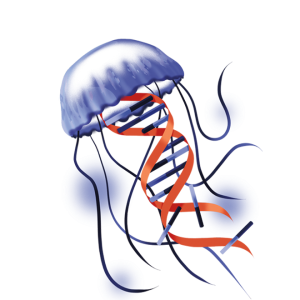
Findings
The latest advances in faculty research, published in the world’s leading journals. -
Discovery

3 Questions
Dr. Gunisha Kaur and the team at the Weill Cornell Medicine Human Rights Impact Lab are finding ways to improve refugee health. -
Alumni
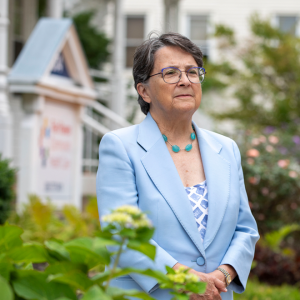
Profiles
From serving vulnerable communities to forging critical connections to move research from the bench to the bedside, our alumni are making an impact. -
Alumni
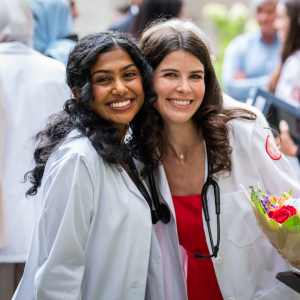
Notes
What’s new with you? Keep your classmates up to date on all your latest achievements with an Alumni Note. -
Alumni

In Memoriam
Marking the passing of our faculty and alumni. -
Alumni

Moments
Marking celebratory events in the lives of our students, including the White Coat Ceremony and receptions for new students. -
Second Opinion

AI in RX
How can chatbots be used in medicine? -
Exchange
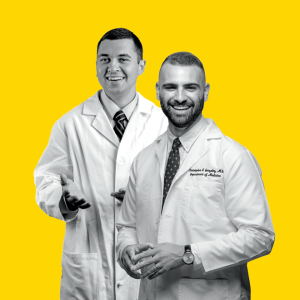
Diversifying Medicine
Two physicians discuss the unique experiences of Latino men in medicine and the crucial need for diversity. -
Muse

Writing to Make Meaning
Dr. Rachel Kowalsky is a pediatric emergency physician and an award-winning author. -
Spotlight
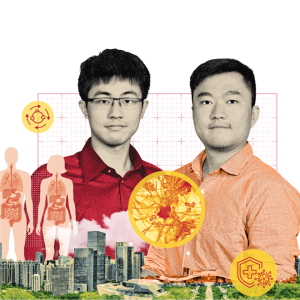
At the Forefront of Immunometabolism
Dr. Ke “Dave” Xu (Ph.D. ’21) and Dr. Anjin Xianyu (Ph.D. ’20), the founders of META Pharmaceuticals, are developing treatments for autoimmune diseases.